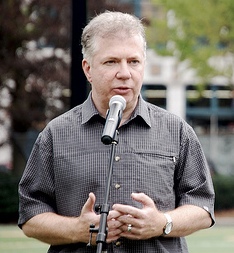Seattle Mayor Ed Murray announced this week that if his Income Inequality Advisory Committee fails to agree on a plan for raising Seattle’s minimum wage to $15, he’ll draw up a plan himself.
Good luck. With the $15 Now! organization led by Seattle City Councilmember Kshama Sawant already declaring that they will file a ballot initiative unless the city gives into their demands, any reasonable compromise seems unlikely. That’s too bad because a reasonable way to raising the minimum wage exists, one that labor activists, the business community, non-profits, and human services agencies can all get behind. That compromise, proposed by the OneSeattle Coalition, recognizes that the goal of a $15 minimum wage – closing the prosperity gap – can’t be accomplished by simply raising the minimum wage. Education, job training, health care, housing, and many other factors have contributed to the increasing gap between the 1% (or more accurately, the top 0.1%) and everyone else.
At the coalition meeting on April 4, I heard leaders from many types of organizations, public and private, for-profit and non-profit, large and small; speak about the harm a $15 minimum wage would cause. Here are some examples:
- A representative for an immigrant family who has a small business growing and selling flowers at the Pike Place Market stated that her whole family pitches in during the flower season. “I can’t afford to pay a $15 wage.”
- The Director of the Seattle Urban League who worried about being able to hire interns to serve at-risk youth and families. “Our staff is young and dedicated to this necessary work. There is simply not the money to pay higher wages.”
- A representative of the Washington Health Care Association, the trade group for nursing homes and assisted living facilities, spoke of the dangers of increasing rates for nursing home residents and seniors in assisted living.
- I spoke, representing private home care agencies. My message was that a $15 minimum wage would ultimately harm seniors who, faced with increasing costs, would need to cut back on needed services. “Home care is not discretionary for vulnerable seniors spending their hard earned savings in order to fulfill their wish to remain at home as they age.” I said.
OneSeattle’s policy is:
- An increase to minimum compensation must be phased in over a number of years
- Minimum compensation must take into account all reportable income and include a credit for benefits such as health care
- A temporary training wage is essential to preserving opportunities for new entrants to the workforce
- No exceptions
photo credit: Matt Westervelt via photopin cc






